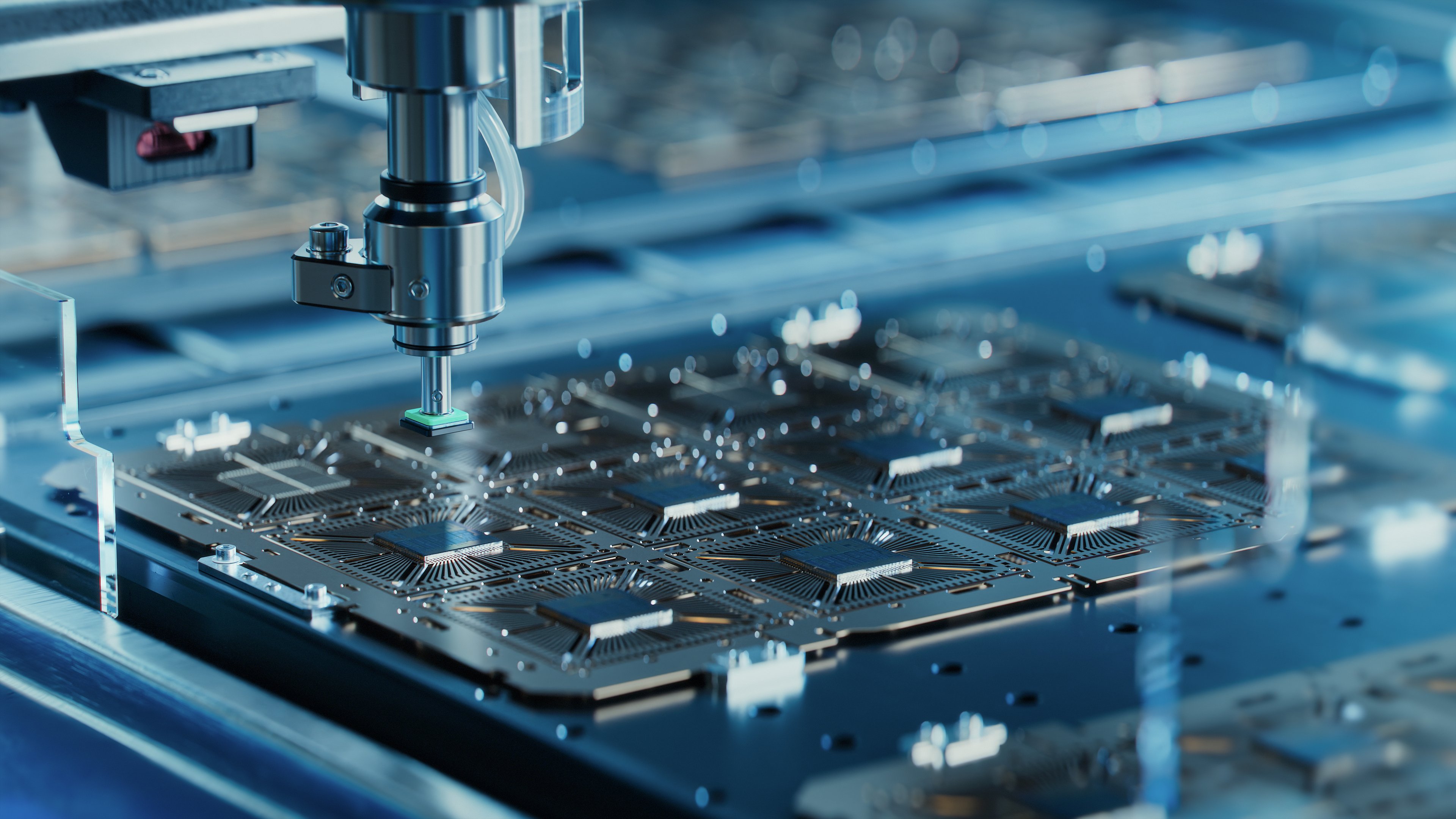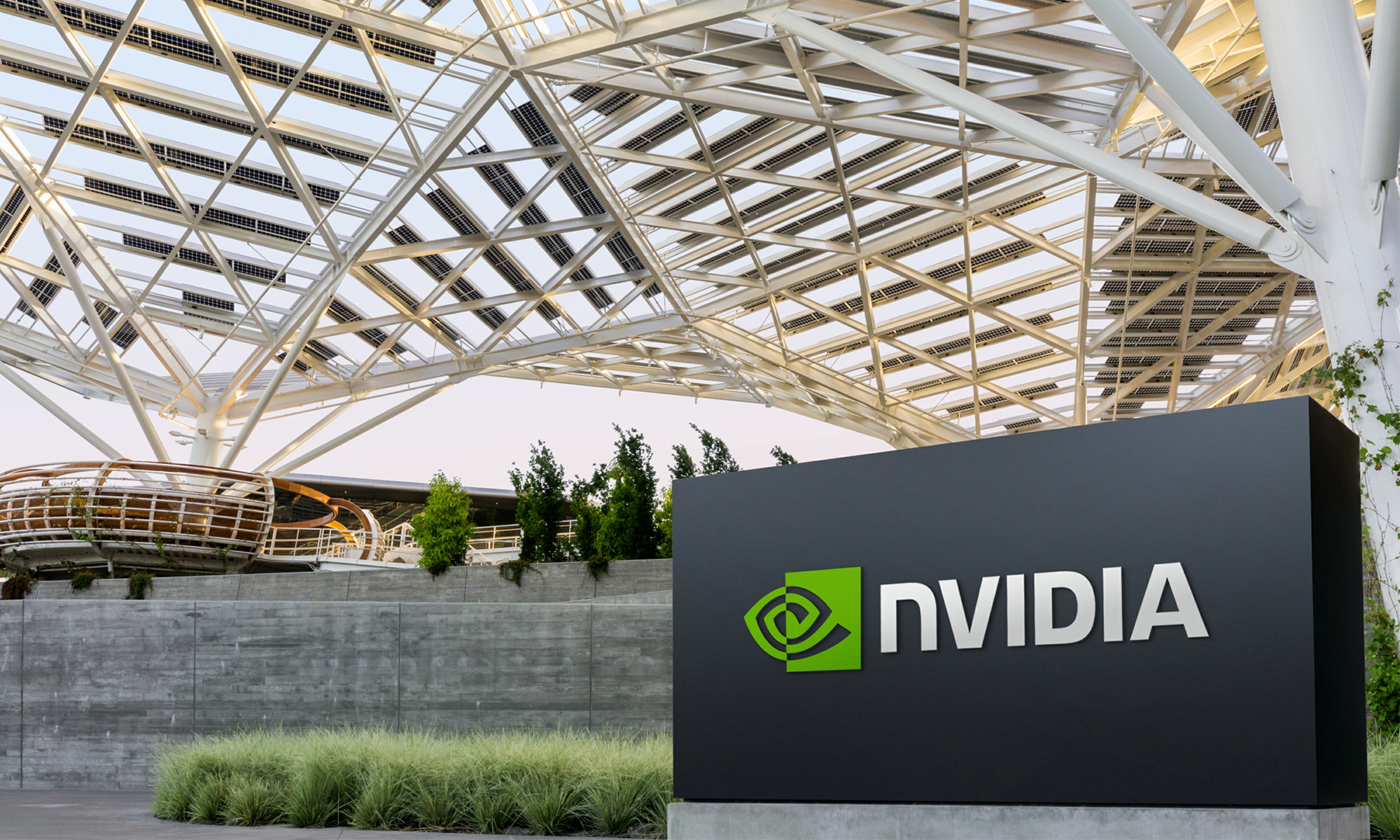The $2 trillion stock club is fairly exclusive. Currently, there are only five companies in it: Nvidia, Microsoft, Apple, Alphabet, and Amazon. All four of these five (except Nvidia) have been dominant tech companies for some time and have seen their products used by the masses. Nvidia, the largest company in the world by market cap, only saw its rise occur in the past few years as demand for artificial intelligence (AI) computing hardware rose exponentially.
One stock that I think could join these five in the $2 trillion club is cut from the same cloth as Nvidia. Broadcom (AVGO 0.75%) has a market cap of $1.7 trillion, but I think it could rise enough to join the $2 trillion club by 2026. That's a 20% upside from today's price, which wouldn't be a bad return in just over a year's worth of time.

Image source: Getty Images.
Broadcom's custom AI accelerators are a massive growth driver
Nvidia has risen to the top because it makes the most popular graphics processing units (GPUs) on the market. GPUs are incredible devices that can process multiple calculations in parallel, and are useful for a wide variety of tasks. They can process gaming graphics, mine cryptocurrency, discover drugs, and process engineering simulations. However, their most popular use case by far over the last few years is AI.
However, GPUs aren't cheap, and many large Nvidia clients are looking for alternatives to GPUs. While they'll still be buying a ton of products from Nvidia, the drive to decrease costs and streamline calculations is where Broadcom enters.

NASDAQ: AVGO
Key Data Points
Broadcom has taken a unique approach to the AI computing hardware game. Instead of trying to develop a wide-purpose computing unit to compete with Nvidia directly, it's partnering with various AI hyperscalers to develop custom AI accelerator chips directly with them. This approach has yielded several winning designs, as Broadcom's custom AI accelerators (which it calls XPUs) are tailored to a specific workload, allowing them to outperform Nvidia's GPUs at a lower cost point. They are inflexible devices, but when a computing unit is only going to see one workload type of its service life, this flexibility doesn't matter.
Broadcom's XPUs aren't computing devices for the masses. There are only four clients for its XPUs right now, but there are several more in the pipeline. While Broadcom doesn't divulge exactly who its clients are, stock analysts have largely linked these four clients to Alphabet, Meta Platforms, ByteDance (TikTok's parent company), and OpenAI (its newest customer).
As more customers finish their designs with Broadcom, this could open a door to a huge market opportunity as AI hyperscalers attempt to increase computing power at a lower cost.
Broadcom's AI business has the potential to transform the company
Broadcom doesn't just do AI. It also has mainframe hardware and software, virtual desktop software via its acquisition of VMWare, and cybersecurity products, just to name a few. AI revenue isn't a huge part of Broadcom, but if growth rates maintain their current pace, it could easily transform into an AI-first business.
In Q3 of fiscal year 2025 (ending Aug. 3), Broadcom's overall revenue rose at a 22% pace to $16 billion. AI-specific revenue (which also includes its connectivity switch hardware) saw revenue rise 63% to $5.2 billion. For Q4, Broadcom expects $6.2 billion in AI-related revenue compared to $17.4 billion overall. That means the AI-centric share of revenue will rise from 33% to 36% in just one quarter. If that trend continues, Broadcom's AI-related revenue could be nearly half of its total by the end of 2026.
With how AI chip demand is going, I wouldn't be surprised to see this trend continue. This growth can easily push Broadcom's stock higher, taking it to the $2 trillion club by the end of next year. I still think Nvidia is a great chip company to own, but Broadcom's solutions are likely to grow at a quicker pace than Nvidia, making it one of the more compelling AI investment stories out there right now.





